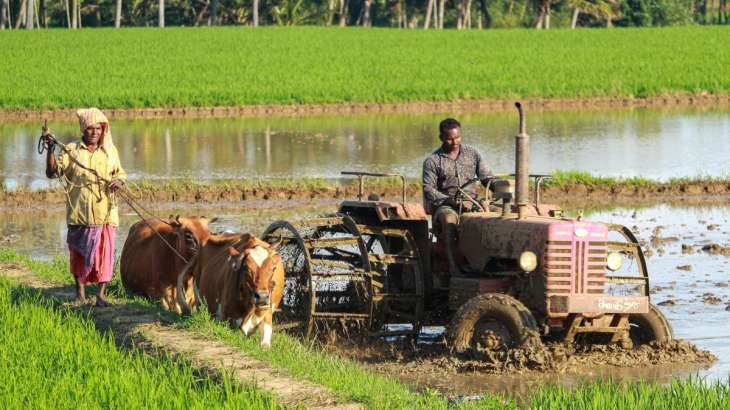
Union Budget on Agriculture: Agriculture has been a booming sector since ages, but intervening bottlenecks are preventing further growth of this industry. The aim of Digital India propels the country to incorporate technology in agriculture – a way to take the sector to new heights.
However, there are complexities that will cripple agriculture to move forward. Some of them include inappropriate climatic conditions, lack of proper resources, geographical issues, etc. The past few years were filled with uncertainty, pandemic stress, economic slowdown, border tensions and global issues.
Despite the constraints, the agriculture sector has managed to perform well. As per the government’s records 2022, food grains production increased from 08.65 million tonnes in January 2022 to 315.72 million tonnes in December 2022. Last year, it was more of a data-driven approach rather than a technology-oriented one.
As the end result matters, people are expecting more with respect to the budget allocation for agriculture, especially in the agritech domain.
Given the difficulties that agritech startups regularly face, there is a lot of groundwork to be done to accomplish an impossible feat. Recent data shows that there are 1700+ Agritech startups in India.
Integration of technology and agriculture not only upgrades the existing agriculture sector but also creates more opportunities for the farmers and generates employment for the people.
Read this also | Rising Inflation: Why is it an important issue to be addressed in the Union Budget 2023?
Investment in agrifood-tech startups to grow 119% to $4.6 billion by 2021-2022, reports AgFunder and Omnivore. In the coming years, there will be an increase in creating awareness about the importance of technology absorption in agriculture.
The sector expects the government to allocate a percentage of the budget to spread awareness about the future of agritech.
Mark Kahn, managing partner at Omnivore, an agri-focussed venture capital firm, says that fluctuating prices in agri-commodities hinder exports to India, which has catapulted the country as a leading country in the export race. affects.
He also said that there should be a policy to facilitate export of agricultural products irrespective of price fluctuations.
Speaking of digital integration, the methods are antiquated and flawed, and digitization adoption involves complex processes such as licensing, regulation, funding, investment, and more.
However, the sector is banking on the Budget 2023 with the hope that the government will bring some value to the table. Digitization not only enhances free trade across borders, resulting in ease of doing business.
Due to complex licensing, registration and other norms, agri-business has not been even close to the expected results.
frequently Asked question:
1) Why is there a huge demand for Agritech startups in India?
Ans) As India is going completely digital, the need to incorporate technology in the agriculture sector makes a lot of difference to the country as well as the farmers. Even the government is supporting the sector by arranging quick funding at low rates.
2) What is the number of Agritech Startups in India by 2022?
Ans) India has seen a growth in Agritech startups in the last five years. As on date, the number of Agritech Startups in India is 1729.